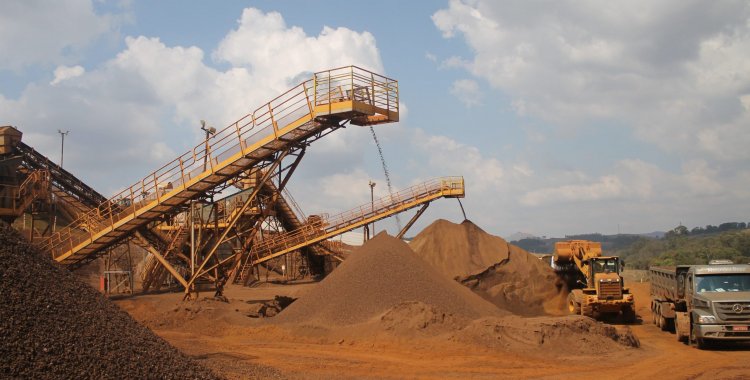The report, produced by the Tchota movement, which includes ecclesiastical and Angolan civil society organizations, was based on the consultation of communities in the provinces of Luanda Norte, Lunda Sul, Luanda and Moxico, on the "impact of extractive industry on the local community mining companies do little with regard to protecting the fundamental rights of populations, hindering sustainable development".
"It is notorious the abandonment of the main objectives of the mining sector and the protection of the fundamental rights and legitimate interests of local communities around the extractive industry by the mining companies in Angola, thus causing the mining companies to delay and hinder sustainable development localities surrounding those companies", he stresses.
The document points out shortcomings in the fulfillment of the objectives of the business mining sector, including the materialization of economic and social development, better use of local labor and improvement of the living conditions of the populations living in the exploration areas, identifying the centralized governance model and weak investment in infrastructure as critical points.
The report also identified the absence of sanctions for companies in case of non-compliance with the law.
Tchota stresses that "there are beginning to be signs of recognizing the role of local economic development", but measures such as the rehabilitation of roads, trained staff, rural commerce, access to drinking water and energy, health services, as stipulated in the Angolan Mining Code, which regulates mining activities and the exploitation of natural resources.
"Participants concluded that the Mining Code was created and approved, without the participation of civil society, without knowing the local reality according to its socio-economic and cultural specifications, and this has hindered compliance and the implementation of certain social projects", according to the document.
It therefore recommends revising the Mining Code, so that local entities have the power to participate in decision-making and comply with social projects for community development, as well as strengthening the associative movement capable of monitoring and inspecting mining activities.
Recovery plans for degraded areas must also be presented, accompanied by an economic and legal plan, promoting transparency and realism in the dissemination of vacancies and projects for communities living in the vicinity of extractive industries and training centers created.
Another suggestion is the creation at the level of the Government and mining companies of a financial fund to respond to natural disasters that result from this activity and that the distribution policies of the 6 percent of mining production supplied by mining companies be more inclusive and transparent.
The information was collected in the municipalities of Saurimo, Lucapa and Luena and Cacuaco, and 209 people were interviewed, of which 32 were women and 177 men, 53 percent of whom were aged between 20 and 40 years, from different social strata, including traditional authorities. , merchants, students, government officials, politicians, religious leaders, teachers, and leaders of non-governmental organizations.
The Tchota movement is a group formed in 2016 by nine Angolan civil society organizations with the aim of creating a national platform for discussion and analysis of the social and economic situation that affects communities living in areas of natural resource exploitation, aiming at justice economic.
This group includes: the Council of Christian Churches of Angola (CICA), Mosaiko - Institute for Citizenship, Ajudaca, Center for African Studies of the Catholic University of Angola (CEA-Ucan), Associação Mãos Livres, Associação Construindo Communities (ACC) , Mwana Pwo, Forum of Women Journalists for Gender Equality (FMJIG) and Action for Rural Development and Environment (ADRA).







